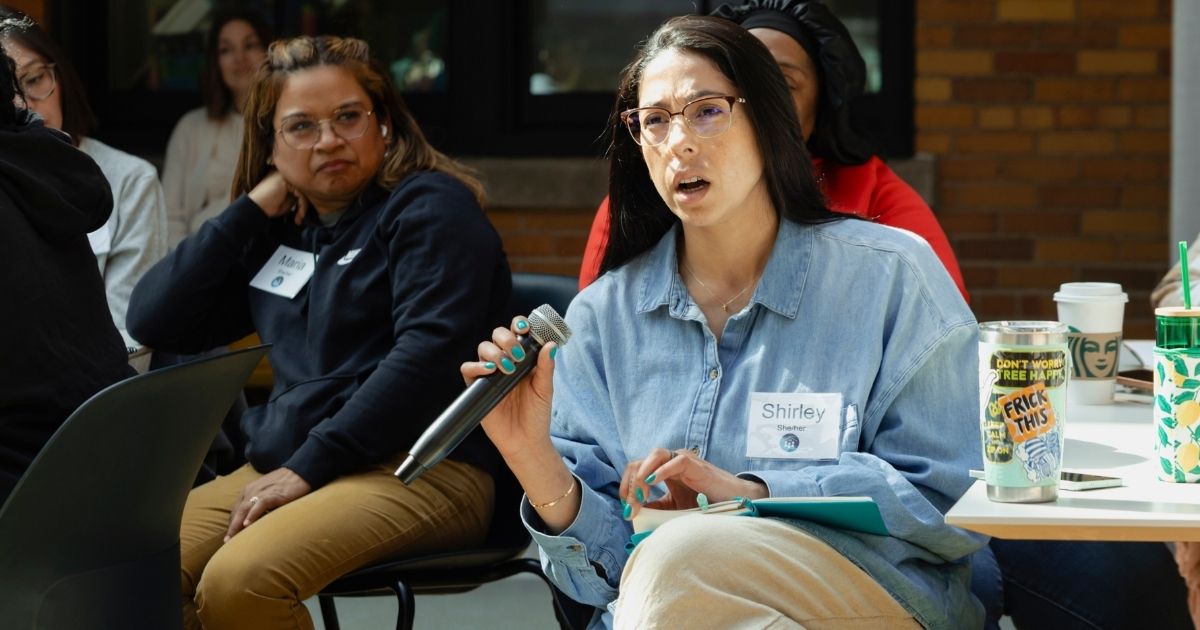Across the world, protests against racial injustice in America have sparked conversation on how racial inequities play out in daily life, including in the workplace.
We need to ensure that conversation continues.
The idea of "white consciousness" is crucial. It goes beyond not saying racist things: It's being aware of your place in this world and how being white affects it.
"If we're going to understand racism in the United States, we have to understand there's racial bias, power and privilege built into our systems that historically have provided advantages and disadvantages based on skin color," said Sonya Hughes, Principal at Inclusive Outcomes.
"Some folks believe that as a white person, they don't gain unfair privilege or unfair advantages simply by being white. In the workplace, everyone wants to believe they've earned their position or leadership role from hard work, from merit. But that is not true in a society that has racism baked into its culture; we have unconscious bias at play all the time."
That doesn't mean white employers and leaders haven't worked hard. It means skin color—whiteness—provides an automatic, unearned advantage in the world over people of color who work as hard or harder. It also means developing white consciousness is necessary to create equitable and inclusive leaders and workplaces.
Being anti-racist goes beyond being an ally in thought alone. It involves willingness to do real work to dismantle racist systems, said Marlene Kowalski-Braun, associate vice president for inclusion at Grand Valley State University. "The term 'ally' should not be used as a noun. It's not a title we can give to ourselves. It's a verb. It's an everyday commitment that requires engaging in difficult work. Communities of color have called us into the more systemic work of transforming systems as accomplices or co-conspirators."
Doing the work involves moving past your fear of getting it wrong or maintaining the "West Michigan nice" charade. It involves actively doing personal work, following the lead of people and communities of color, accepting feedback when we step in it, interrupting and dismantling inequitable systems. Hughes and Kowalski-Braun agree: It's taking action to leverage our influence, as we shift the labor of anti-racism work to those with power and privilege.
In the workplace, especially for leaders, this means identifying equity gaps. Among important commitments for equity leaders:
- Personal work – Activate self-awareness.
- Grow in knowledge – Understand history, constantly learn, develop cultural awareness and humility.
- Stay conscious/committed – Engage in anti-racism work daily.
- Be courageous – Ask tough questions, interrupt bias, enact social change.
"If we're noticing in workspaces that all leaders are white, but we have people of color in the workspace, ask 'Why'? There's something in the system that needs to be examined," Hughes said. "That's taking your consciousness and putting it into action to change the disparities in the system."
This lifelong process is not linear, Kowalski-Braun notes. "As we unlearn the racism we've been taught, we continue to encounter deeper layers and new ways of seeing things. To be clear, I engage in this work because I know that I need it—that I'm constantly learning and trying to do better."
If this seems tiresome to you, remember: That alone is a privilege.
"As a Black person, I have to understand white supremacy and racism just so I can meet my human everyday needs," Hughes said. "I'm always conscious of my race in spaces that I'm in, because it has a definite impact. If I don't know how to navigate those spaces to the best of my ability, I will feel the consequences."
White consciousness is not simply a book club or workshop, yet those can be great starting points. Hughes suggests the book Me and White Supremacy by Layla Saad, a Black woman encouraging white readers, with a 28-day challenge that's easy to understand and applicable to real life.
Let that be merely the beginning. Kowalski-Braun suggests finding other white people engaged in anti-racism to be accountability partners, so you don't place an extra burden on your Black colleagues, friends and neighbors. You need to keep it going.
"It's really important to sustain your learning around your own whiteness," Hughes said. "Don't make it an event, make it a journey. And when you're doing it with others, you're holding yourself accountable in a different way. When it gets uncomfortable or you don't feel like it can be a priority any longer because something else has drawn your attention, that helps you to understand that as a white person, you have a privilege of choice.
"You get a choice in how important racism is to you."
Josh Veal is the managing editor of Revue and a former nonprofit reporter. He keeps in the know on local restaurants, breweries and venues through ample firsthand experience. Josh enjoys cocktails on the porch, graphic novels, social justice and biking through nature.
This article originally appeared in the Oct/Nov 2020 issue of West Michigan Woman.




